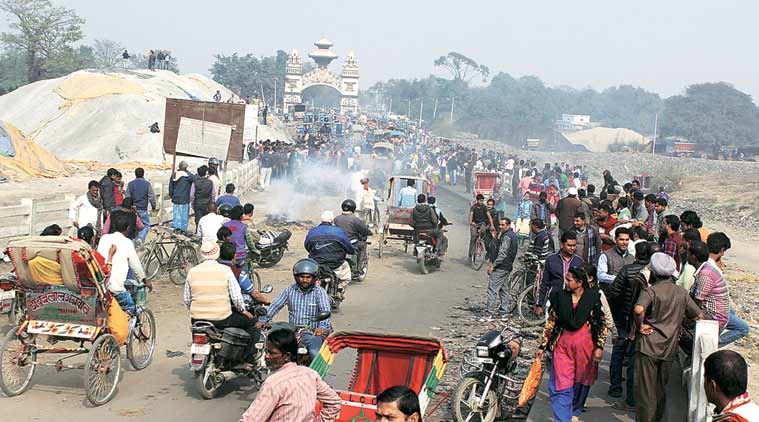Market

The government loses revenue in billions of rupees every fiscal year because of grey market trading, the chief of the Nepal Chamber of Commerce has said.
Chamber President Rajendra Malla said, “Illegal trade flourishes unchecked because of the open border between Nepal and India.”
Our government suffers revenue loss that runs into billions each year because of this illegal trading, he said.
Malla led a group of chamber officials and met with Deputy Prime Minister and Home Minister Rabi Lamichhane on Wednesday.
The group apprised the minister of the issue and urged him to set up strong deterrence to remove illegal trading by unauthorised entities.
Illegal trading between the two neighbouring countries inflicts huge losses every year. Approved traders and businesses who pay taxes suffer financial loss because of the grey market, the group told the minister.
The government should consider strict measures and book illegal traders. Sales of more than 40 per cent of goods and consumables occur in the grey market, the group told minister Lamichhane.
Nepal imports petroleum, iron, steel, grains, cars, lorries, automotive parts, and heavy machinery parts from India. Imports from India make up 22 per cent of the total value of goods and services produced in Nepal.
Nepal exports soybean oil, spices, jute fibre, synthetic yarn and tea among other items to India.
On the issue of creating jobs, the delegation urged the minister to make a database of workers who have completed their contracts in the Middle East and Far East and returned to Nepal.
The delegation urged the minister to boost police surveillance to prevent financial crimes in the country that have increased recently.
The chamber panel presented a list of 10 suggestions to watch and boost cross-border trade. The government should allow only approved traders to import and export goods and services. This would give clarity on trade volume between Nepal and India and earn more indirect tax to the government.
Deputy Prime Minister Lamichhane assured action on the issue to the delegation. He told them he will tell the concerned authority to find out and stop all illegal trading and added, he would push for result-oriented policies for good governance.
India is Nepal’s largest trade partner. The volume of trade between the two countries crossed Rs976.78 billion in the fiscal year 2020-21. Indian imports added up to Rs886.59 billion and exports to India to Rs90.19 billion.
In the past, India and Nepal have worked jointly to better control and improve two-way trading. Both countries signed a new treaty to check and control illegal trade across the border 13 years ago in October 2009.
India’s Commerce and Industry Minister Anand Sharma, under Prime Minister Dr Manmohan Singh’s coalition government and Nepal Minister for Commerce and Supplies Rajinder Mahto had signed the revised ‘India-Nepal Treaty of Trade and Agreement of Co-operation to Control Unauthorised Trade’.
The plan to revitalise the Treaty took place during the visit of then Prime Minister Madhav Nepal to New Delhi in September 2009.
The Treaty aims to improve access to Nepali goods and services in India, promote investment, make trading procedures simple and easy, mutual acceptance of certificates, develop border infrastructure and boost Nepal’s trading capacity.
The Raxaul-Birgunj Broad Gauge Rail Link Project has eased trading between the two countries. India has made a commitment to set up an Emergency and Trauma Centre at the Bir Hospital and the Mahendranagar-Tanakpur Link Road Project, according to information published by the website of the Nepal Embassy in New Delhi.
Other projects planned between the two neighbours include, cross-border rail links at five locations on the Indo-Nepal border. The rail corridors include Jalpaiguri-Kakarbhitta, Jogbani-Biratnagar, Jayanagar-Bardibas, Nautanwa-Bhairahwa, and Nepalgunj Road-Nepalgunj.
Two-way trade and commerce will increase significantly between Nepal and India once these railway corridors start working.






